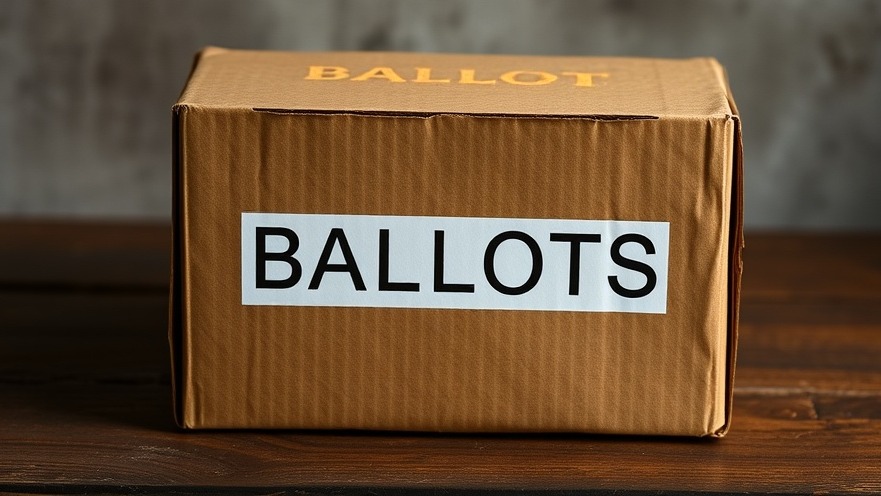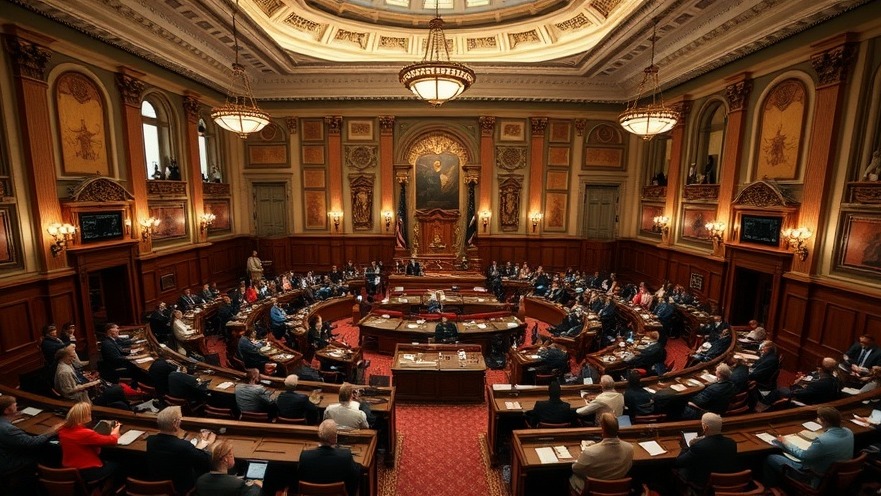
The Court's Controversial Ruling on Voter ID in Texas
A recent ruling by the U.S. Fifth Circuit Court of Appeals has sparked fresh debates over voting rights in Texas. The court upheld the state's requirement for voters to include identification information in their mail-in ballot applications, a rule many consider to be a barrier for vulnerable populations.
Who Is Affected By Texas's Mail-In Voting Requirements?
Under Texas law, mail-in voting is restricted to specific groups, including the elderly and individuals with disabilities. With the implementation of Senate Bill 1 in 2021, eligible voters must now provide an ID number—such as a driver's license number—on their applications and ballots. Critics argue that this requirement disproportionately affects those with disabilities, and many are left to grapple with the complexities of obtaining the necessary identification.
Supporters Claim Fraud Prevention as Justification
Proponents of the law, including Texas Attorney General Ken Paxton, assert that these voter ID requirements are essential for maintaining election integrity. Paxton expressed satisfaction with the court's ruling, emphasizing the importance of identifying voters to prevent fraud, although evidence supporting fraudulent activity in mail-in voting remains scarce.
Legal Battles Over Voting Rights and Equity
This ruling comes after the District Court for the Western District of Texas found that the previous requirements violated the Civil Rights Act. However, the Fifth Circuit reversed this decision, leading civil rights organizations to voice concerns about potential discrimination against voters who are unable to meet these ID requirements. Many fear that such laws could lead to systemic disenfranchisement.
The Bigger Picture: Trends in Voting Legislation
Across the country, many states are enacting stricter voting laws, which are often framed as necessary measures against fraud. A study by the Brennan Center for Justice highlighted that many voters experienced ballot rejections in the 2022 primaries in Texas. This has led to widespread disenfranchisement and forces voters to reconsider their voting methods—often opting not to vote at all.
Future Implications on Voting Rights
The implications of this ruling could resonate beyond Texas, with many states looking to similar frameworks to structure their voting laws. As legislative measures continue to evolve, it's critical for voters to stay informed about their rights and the potential obstacles they might encounter in future elections.
What You Can Do
As the landscape of voting regulations shifts, community engagement becomes more vital than ever. Individuals can advocate for fair voting practices by contacting local representatives, participating in voter education campaigns, and supporting organizations that work to protect voting rights. The health of our democracy relies on robust public engagement and awareness.
 Add Element
Add Element  Add Row
Add Row 



Write A Comment